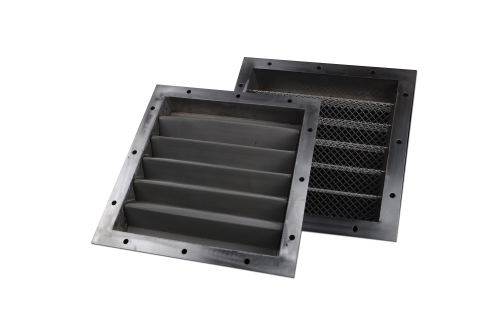
Submersibles and underwater equipment manufacturer, MSubs, has been able to maximise the operational efficiency of a custom designed subsea chemical processing skid, thanks to a solution provided by Croft Filters.
For a seawater filtration assembly containing 18 individual panels, MSubs required reliable filter panels capable of dealing with flow rates of up to 4500LPM. Following an in-depth consultation and flow rate analysis, Croft Filters’ experts were able to design and manufacture a product to meet the project’s complex requirements within a short timeframe.
While alternative suppliers were only able to offer multi-layer filtration panels as a fixed structure, Croft designed an assembly that can be separated easily, enabling the filter to be cleaned in the field if any unforeseen blockages arise. This flexible design means that in the event of damage, only the defective part would need to be replaced, thus reducing costs and labour.
Croft’s panel also incorporated a sacrificial protective cover, which can be replaced quickly and at a low cost, reducing the risk of any physical damage to the filters.
James Hawker, mechanical engineer at MSubs, said: “Alternative suppliers had offered products with a fixed design that would be difficult to clean if they became blocked, and their supply lead time was many weeks. We approached Croft Filters and were impressed by the team’s technical expertise, as well as its ability to react quickly to our project requirements. “In addition to offering a more cost-efficient product, Croft’s design provided additional benefits to the equipment operator, as it could be easily separated and cleaned in the field, and its build quality was excellent.”
Neil Burns, director at Croft Filters, explained: “This was a complex project, and we recognised the need for a reliable filtration solution that could be maintained at a low cost. By carrying out extensive flow rate testing, we developed a bespoke panel that is robust enough to control the pressure drop across the filter and withstand salt water corrosion. The result is a sustainable solution that helps to safeguard the long-term success of MSubs’ project.”



